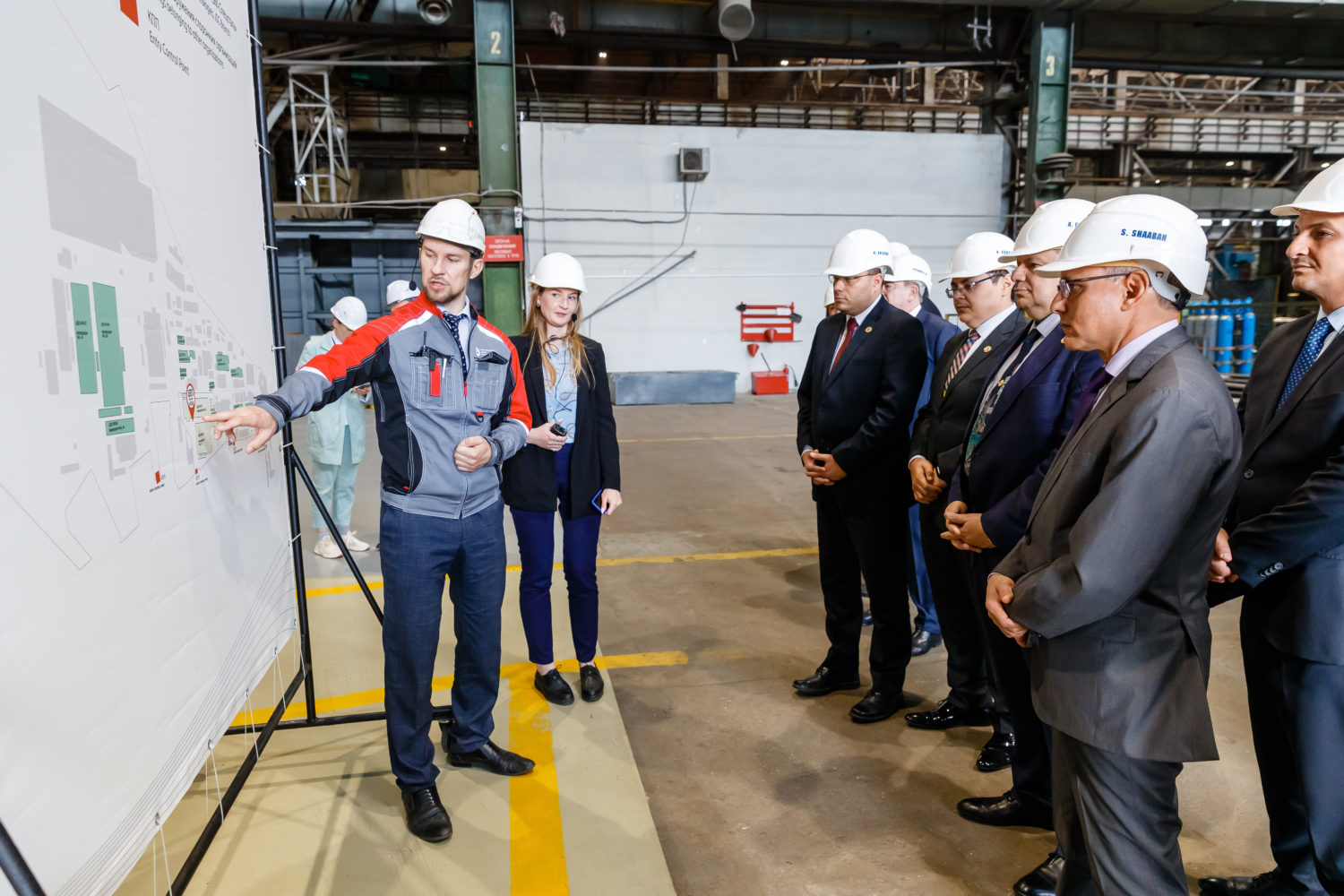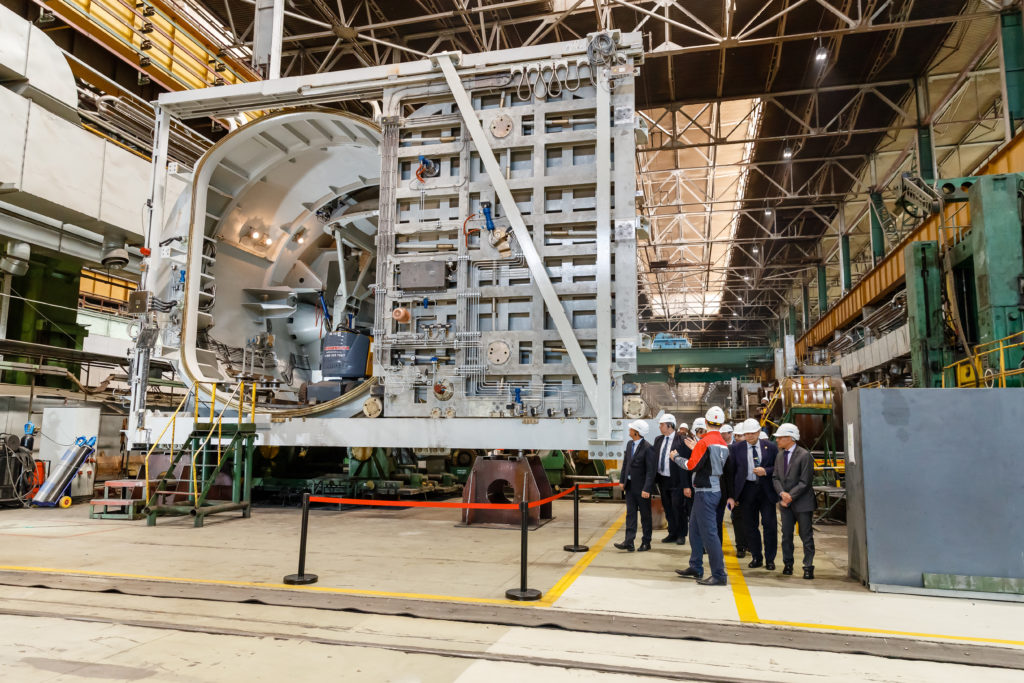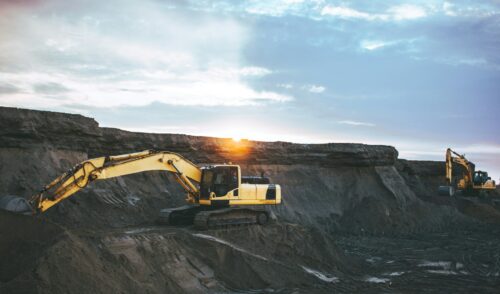
Evident Progress
back to contentsEgyptian and Russian officials and top managers make regular visits to the construction site of Egypt’s first nuclear power plant. During the last such visit, members of the delegation praised the progress in El Dabaa construction.
The delegation included Amged El-Wakeel, Chairman of Egypt’s Nuclear Power Plants Authority (NPPA), Alexander Korchagin, Senior Vice-President for NPP Construction Projects at ASE (part of Rosatom), NPPA top managers, and representatives of ASE and Russian R&D institutes.
The delegation visited each of the docks designed to receive equipment, and other key locations on the construction site. Its members were told about the performance in 2022 and plans for the current year.
Amged El-Wakeel praised the scale of the achievements made and stressed the importance of reaching the goals set for 2023. In his turn, Alexander Korchagin said, “The teams are working cohesively and dynamically across all and every project area; the work is going at a good pace. There is a lot to do in 2023, and we are preparing for it responsibly.”
Amged El-Wakeel earlier said that the first shipment of equipment for El Dabaa was expected to arrive in the first quarter of 2023. According to him, a core catcher will be the first to be delivered after it passes appropriate tests in Russia. It took about 14 months to manufacture the core catcher — its production began in late July 2021, Amged El-Wakeel said.

The NPPA Chairman explained that the core catcher, a know-how of Russian nuclear engineers, was a distinctive feature of innovative Generation III+ reactors, to which El Dabaa NPP reactors belong. This is the first large-size device to be installed in the reactor building under the bottom of the reactor pressure vessel. It improves safety of the reactor unit in any emergency, preventing the escape of radioactive materials and potential damage to the reactor containment. The core catchers are installed at other reactors constructed by Rosatom abroad, particularly at the Tianwan NPP in China and the Kudankulam NPP in India.
Amged El-Wakeel also said that the construction license for El Dabaa Unit 3 was expected to be issued in mid‑2023. He added that the Egyptian nuclear project would pass many milestones during the year.
Adding nuclear to the national energy mix is a global trend, experts say. At present, 32 countries operate nuclear power plants with many others consider building their first nuclear stations.
According to Noura Hassan, a nuclear physicist and professor of the Russian-Egyptian University, the world badly needs new generating capacity to replace old polluting power plants. Demand for clean and sustainable energy, especially nuclear energy, is high, she says. The professor cited a recent study by Oxford University: it demonstrates the world will need to build 235 new nuclear reactors over the next eight years to achieve carbon neutrality by 2050.
According to Noura Hassan, nuclear power is of worldwide importance for two main reasons: it is a clean energy source that produces no carbon dioxide emissions, and also a sustainable long-term solution.




